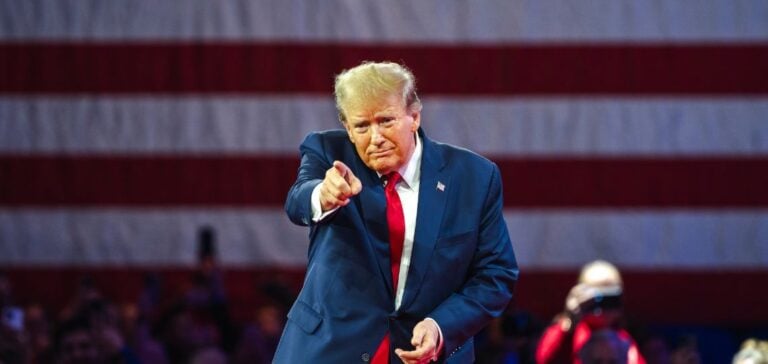The North Sea, once central to global energy strategy, is now emblematic of growing tensions between states’ environmental ambitions and the economic interests of major oil companies. In a recent statement on Truth Social, United States President-elect Donald Trump sharply criticized the United Kingdom’s energy and tax policies, which he claims are responsible for the decline in oil activities in the region.
Unprecedented tax rates
Trump’s criticisms center on the recent increase in windfall taxes on oil and gas companies operating in the United Kingdom. The UK raised this rate from 35% to 38% in October, bringing the total taxation on the sector to a record 78%, one of the highest levels globally. According to Trump, these measures unnecessarily penalize a vital sector and deter foreign investments.
These comments coincide with APA Corporation, a U.S.-based hydrocarbons company, confirming its phased withdrawal from the North Sea by 2029. APA joins Shell, Exxon Mobil, and Chevron, which have already exited the region in recent years, highlighting the growing impact of taxation on their strategic decisions.
Declining production and mounting tensions
Recent data underscores a worrying trend: North Sea oil production has dropped from 4.4 million barrels of oil equivalent per day in the 2000s to just 1.3 million today, its lowest level since production began in the 1970s. Meanwhile, the region has become a global leader in offshore wind energy, hosting landmark projects such as Dogger Bank, the largest offshore wind farm in the world.
For Trump, however, this commitment to renewable energy does not offset the economic losses associated with the decline in oil production. He advocates getting rid of windmills and prioritizing oil exploration in the North Sea as necessary steps to ensure economic and energy security.
A troubling signal for the global market
Trump’s statements, known for their market impact, have already shaken the renewable energy sector. Following his election, shares in offshore wind companies fell, reflecting uncertainties about his promises to dismantle wind projects on day one of his term. These tensions expose a widening gap between some states’ climate objectives and market realities.
For the United Kingdom, these criticisms come at a delicate moment. While the country aims to fully decarbonize its energy sector by 2030, the departure of major oil companies from the North Sea raises questions about its ability to balance energy transition goals with economic attractiveness.






















